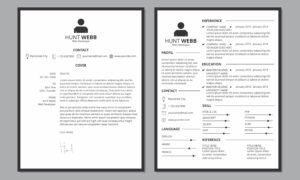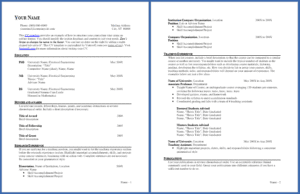Getting ready for a new job interview or screening can be overwhelming, particularly when you’re uncertain what’s in store. In Ireland, as in many places, interview questions are intended to evaluate your abilities and experience as well as your fit with the organization’s culture. Understanding the common interview questions and how to respond to them successfully can give you a huge benefit. In this blog, we’ll investigate different types of job interview situations, from specialized and social inquiries to what’s in store in administration and remote new employee interviews. We’ll likewise give tips on the most proficient method to deal with complex questions, such as talking about your shortcomings, and how to involve the STAR technique for addressing behavioral questions.
Common Interview Questions in all Jobs and How to Answer Them
Regardless of the role or industry, certain questions are almost universal type in job interviews. Being prepared for these common questions can help you feel more confident and articulate during the interview in all types of jobs.
- Tell me about yourself.
This question is often used to judge you, but it also sets the tone for the rest of the interview. Focus on your professional background, key achievements, and what you’re looking for in your next role. Avoid going into too much personal detail. - Why do you want to work here?Research the company thoroughly and link your skills and experiences to the company’s values, mission, and the specific role. Highlight- why you’re a good fit and how you can contribute to the company’s success.
- What are your strengths?Choose strengths that are relevant to the job. Provide examples of how you’ve demonstrated these strengths in past roles to add credibility to your answer.
- What is your biggest weakness?This can be a tricky question, but honesty is key. Choose a real weakness of yours, explain how you’re working to improve it, and, if possible, turn it into a positive by showing what you’ve learned from it.
- Where do you see yourself in five years?Focus on professional growth & alignment with the company’s goals. Employers want to see that you’re really ambitious but also committed to growing within their organization definitely.
- Why are you leaving your current job?Be honest but diplomatic. Focus on what you’re looking for in a new role rather than criticizing your current or previous employers.
Behavioral Interview Questions: How to Prepare
Behavioral interview questions are designed to assess how you’ve handled situations in the past, which can indicate how you’ll perform in the future. Preparing for these questions you should give light on your past experiences and how they’ve shaped your work behavior.
The STAR Method: Answering Behavioral Questions Effectively
The STAR method (Situation, Task, Action, Result) is a structured way to answer behavioral questions. It helps you present your experiences clearly and concisely:
- Situation: Describe the context within which you performed a task or faced a challenge.
- Task: Explain what your responsibilities were in that situation.
- Action: Detail the steps you took to address the task or challenge.
- Result: Share the outcome of your actions, highlighting what you achieved or learned.
Example Question: Tell me about a time when you had to solve a difficult problem.
Answer using STAR:
- Situation: In my previous role as a project manager, we were running behind schedule on a critical project due to unforeseen technical issues.
- Task: My task was to identify the problem areas and bring the project back on track without compromising quality.
- Action: I organized a series of meetings with the technical team to pinpoint the issues, then reallocated resources and adjusted the project timeline to meet the deadlines.
- Result: As a result, we completed the project two weeks ahead of the revised schedule, and it met all quality benchmarks.
Questions for Part Time or Remote Job Interviews
With remote or part-time work becoming increasingly common in Ireland, you may encounter interview questions specifically related to working from home or working part-time.
- How do you manage your time when working remotely or part time?Discuss your strategies for staying productive, such as setting a daily schedule, using task management tools, or creating a dedicated workspace.
- What communication tools do you prefer for remote work?Mention any experience you have with tools like Slack, Zoom, or Microsoft Teams, and how you use them to stay connected with your team.
- How do you handle distractions when working from home?Provide examples of how you minimize distractions, such as setting boundaries with family members or using noise-canceling headphones.
- Can you describe a time when you successfully collaborated on a remote project or part-time?Use the STAR method to explain how you managed communication, coordinated tasks, and delivered results while working remotely.
- What challenges do you foresee with remote work or part-time work, and how would you address them?Acknowledge potential challenges like isolation or time management and share your strategies for overcoming them.
Technical Interview Questions for IT and Engineering Roles
Technical interviews in Ireland, especially for IT and engineering roles, can be rigorous. These interviews often test your problem-solving abilities, coding skills, and technical knowledge.
- Explain a technical concept to someone who isn’t familiar with it.This question assesses your ability to communicate complex ideas clearly. Choose a concept relevant to the role and break it down into simple terms.
- Describe a challenging technical problem you’ve solved. Use the STAR method to structure your response, focusing on the steps you took to resolve the issue and the outcome.
- What programming languages are you proficient in? Be honest about your skill level in each language and provide examples of how you’ve used them in previous projects.
- How do you keep up with the latest developments in technology? Mention relevant courses, certifications, online resources, or communities you’re involved with to demonstrate your commitment to continuous learning.
- Can you walk us through a recent project you worked on? Detail the project’s objectives, your role, the technologies you used, and the results. Highlight any challenges you faced and how you overcame them.
Questions to Expect in a Management Interview
Management interviews focus not only on your technical skills but also on your leadership abilities, strategic thinking, and ability to handle team dynamics.
- How do you handle conflict within your team? Discuss a specific example where you successfully managed conflict, emphasizing your communication skills and problem-solving abilities.
- Describe a time when you had to make a tough decision. Use the STAR method to outline the situation, the decision-making process, and the impact of your decision.
- How do you motivate your team? Share strategies you’ve used to boost team morale, such as recognizing achievements, providing professional development opportunities, or setting clear and achievable goals.
- How do you prioritize tasks and manage your time? Discuss tools or methods you use to stay organized, such as task management software, prioritization techniques, or delegation strategies.
- What is your approach to performance management? Explain how you set performance expectations, provide feedback, and support your team’s growth and development.
Top Interview Questions for Sales and Marketing Interviews
Sales and marketing interviews often revolve around your ability to meet targets, understand customer needs, and implement successful campaigns.
- How do you handle rejection? Discuss how you stay motivated despite setbacks, focusing on your resilience and your strategies for learning from rejection.
- Can you give an example of a successful campaign you ran?
Describe the campaign’s goals, your role in its execution, and the measurable results. Use data to back up your success.
- How do you approach lead generation? Explain your process for identifying potential clients, nurturing leads, and converting them into sales. Mention any tools or techniques you use.
- What strategies do you use to stay updated on market trends?
Mention industry publications, competitor analysis, networking events, and other resources you use to keep your knowledge current. - How do you measure the success of a marketing campaign? Discuss key performance indicators (KPIs) such as return on investment (ROI), conversion rates, and customer engagement metrics.
How to Handle Interview Questions About Your Weaknesses
Examining your shortcomings in a meeting can be awkward, yet it’s a typical inquiry in Ireland and across the globe. The key is to be honest without undermining your candidacy.
- Choose a real weakness. Avoid clichés like “I’m a perfectionist.” Instead, select a genuine area where you’ve identified room for improvement.
- Explain how you’re working on it. Show that you’re proactive about addressing your weakness. For example, if public speaking is a weakness, mention that you’re taking a course or seeking opportunities to practice.
- Turn it into a positive. Frame your weakness as a learning experience. For instance, if you struggle with delegating, explain how you’re learning to trust your team and share responsibilities more effectively.
Questions to Ask the Interviewer
At the end of the interview, you’ll usually have the opportunity to ask your own questions. This is your chance to show your interest in the role and the company.
- Can you tell me more about the team I’ll be working with? This question shows that you’re interested in how you’ll fit into the team dynamic.
- What are the next steps in the interview process? Asking this question demonstrates your eagerness to move forward and helps you understand the timeline.
- How do you measure success in this role? This question helps you understand what the company values and what they’ll expect from you.
- What are the company’s goals for the next year? Showing interest in the company’s future plans indicates that you’re thinking long-term.
- What opportunities are there for professional development? This question shows that you’re interested in growing with the company.
Conclusion
Mastering the interview process in Ireland involves understanding the types of interview questions you might face and preparing thoughtful, structured responses. Whether you’re facing common interview questions, behavioral or situational queries, or technical challenges, being well-prepared can make all the difference. Use the STAR method to craft compelling answers, be ready to discuss your strengths and weaknesses honestly, and don’t forget to ask insightful questions of your own. With these strategies, you’ll be well-equipped to make a strong impression and secure the job you’re aiming for. Visit our Job portal here.






